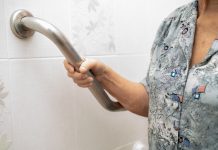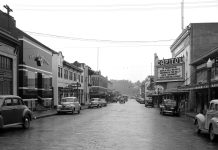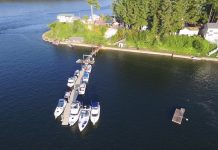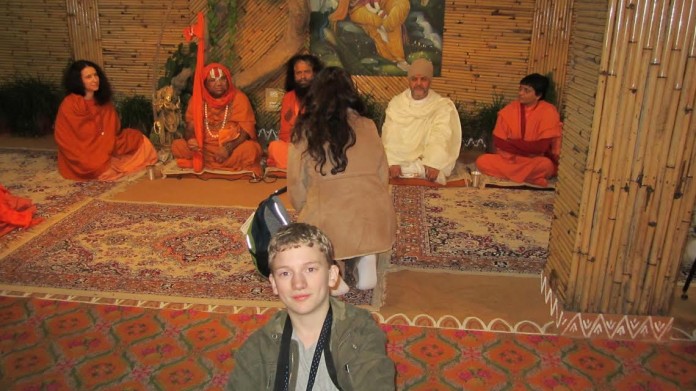Submitted by Phoenix Rising
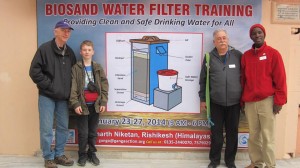
For most seventh graders, a goal might be getting better grades or having a new iPhone. Phoenix Rising alumni Noah Medrud is dreaming bigger: he wants to bring clean drinking water to the world. Noah and his father Wayne recently traveled to India where they helped to train 120 people representing forty NGOs (non-governmental organizations) in how to build biosand water filters.
The project was a collaboration between the South Asia Pure Water Initiative and Friendly Water for the World, an Olympia-based non-profit organization. In India, where one in three families struggles to put clean water on the table, their work has the potential to make a huge impact. “The Minister of Health and the Minister of Water Resources came down to the ashram where we were teaching,” says Noah. “They issued a memorandum of understanding that they would get biosand filters into 16,000 schools.”
The journey originated much closer to home, at a Mother Earth News fair in Puyallup attended by Wayne’s partner, Robin Lee. A man was presenting information about rainwater catchments but gave a caveat: you could use the water for many purposes – except drinking. “There was a guy in the back of the room who said, ‘Unless you put it through a biosand water filter,’” says Wayne. That got Robin’s attention enough for her to sign up for a training, and ultimately, Wayne decided to create a home-based business, Northwest Biosand. Noah also went through the training and eventually the family got involved with Friendly Water for the World.
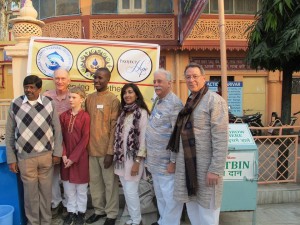 On arriving in India, they were struck by cultural differences, particularly the relative standards of living in India and the U.S. “The first thing that hit me getting off the plane in Delhi and heading through the city on the rail line was the smell of burning cow pies for fuel,” says Wayne. “That stayed with me through the entire trip, as did the congestion and the traffic. But yet, the people are so beautiful.”
On arriving in India, they were struck by cultural differences, particularly the relative standards of living in India and the U.S. “The first thing that hit me getting off the plane in Delhi and heading through the city on the rail line was the smell of burning cow pies for fuel,” says Wayne. “That stayed with me through the entire trip, as did the congestion and the traffic. But yet, the people are so beautiful.”
At one school they visited, a well-intentioned NGO had put in a septic tank, uphill of the village well and quite close to it. A test of a water sample was designed to change color depending on the color of the water. “This sample would only change color if bacteria were present. This sample turned black,” says Noah. “You couldn’t see through it. I wouldn’t want to drink it.”
Toward the end of their trip, they visited a rural youth hostel for low caste children of working farmers. They were representing Friendly Water, who had been connected with the hostel for several years. “There were 34 kids. We got there and didn’t speak a word of their language,” says Wayne. “There was a girl Noah’s age who came up to me and carried on in her best English all her hopes and dreams of becoming a doctor. It just really touched my heart.”
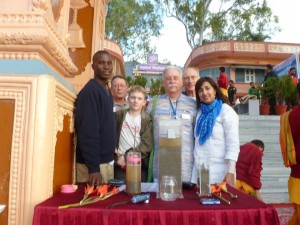 The experience made a big impression on both of them. “I know now that we live in luxury compared to most people,” Noah says. “I don’t take things for granted the way I used to, like water. We think we can just open up the tap and water will come out. Not necessarily. We think we’ll have power any time we turn on a switch. They have rolling power cuts every so often. You may have hot water three hours out of the day as opposed to hot water any time.”
The experience made a big impression on both of them. “I know now that we live in luxury compared to most people,” Noah says. “I don’t take things for granted the way I used to, like water. We think we can just open up the tap and water will come out. Not necessarily. We think we’ll have power any time we turn on a switch. They have rolling power cuts every so often. You may have hot water three hours out of the day as opposed to hot water any time.”
“It has shaken my entire idea of who I am and what my purpose in life is, right to the core,” Wayne says. “I’m feeling really out of sorts. I want to go do it again.” For the past few years, his business has been focusing primarily on low cost, high impact technologies to heal the earth. “Rocket mass heaters and biosand water filters, edible forest gardens – things like that,” he describes. “I just want to take this stuff and show people that are willing to listen.”
Both are excited about participating in future projects. “There’s a big potential that we could be going to Uganda some time in the summer to use an ancient Chinese well-drilling method, along with a hand pump from Pakistan that has some unique properties,” says Wayne. “Two of them have already been done in Uganda with great success.”
Meanwhile, Noah continues his role as one of the youngest board members of Friendly Water for the World.
Wayne puts is simply. “I now recognize the interconnectedness of all people on earth and if somebody someplace else is suffering, then whatever I do to help heals me also.”
Find out how you can support Friendly Water for the World and South Asia Pure Water Initiative




